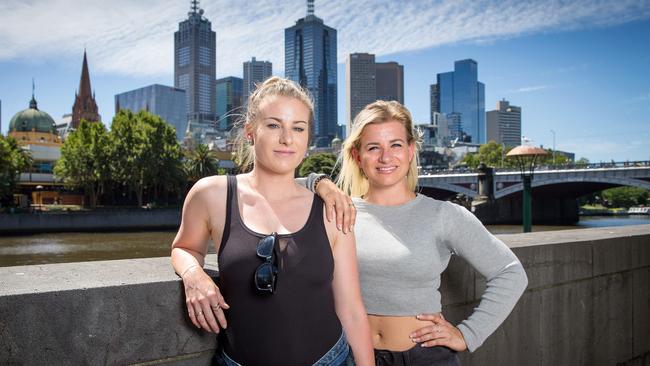World’s largest examination of young women’s health begins in Melbourne
THE world’s largest ever examination of young womens’ health has begun in Melbourne to determine what the true impacts are on everyday life.

News
Don't miss out on the headlines from News . Followed categories will be added to My News.
THE world’s largest ever examination of young womens’ health has begun in Melbourne to determine what the true impacts are on everyday life.
While extensive research has previously focused on specific conditions as well the health of pregnant and older women, the Monash University study aims to identify the wider health impacting typical women aged 18-39.
By examining 7000 women from across Victoria, NSW and Queensland, Monash University Women’s Health Research Program director Prof Susan Davis hopes to gain an insight into the everyday needs of those usually ignored.
“We know there are health issues in women of this age that can really mess up their lives (but) if you do a study looking at those things you are only going to get women with those problems,” she said.
“We want to put out a broader net so we can see what is normal, what is abnormal, how many women are effected by abnormal things, how badly effected they are and what they are doing about it.
“That will give us a snapshot in time about the health and needs of women of this age.”
Rachael Akerboom backed the study and hoped it would help diagnose women quicker for early prevention.
“It’s a great idea to study women directly. You have to go to the source to be able to understand and later fix issues,” she said.
The Grollo-Ruzzene Foundation has provided more than $500,000 in for the Monash collaboration with Roy Morgan Research, which started recruiting participants late last year.
The huge sample size is hoped to provide accurate information on some of the rarer conditions.
Prof Davis said women’s health problems led many to take time off work or living a reduced quality of life through conditions such as premenstrual syndrome, polycyclic ovarian syndrome and endometriosis.
“There are probably a lot of conditions that are being under reported,” she said.
“This will inform health recommendations if we find things like a high oration have iron deficiency, an de would then be able to make a recommendation for women’s or be aware of this.”
Each volunteer will be asked to fill in a web-based questionnaire that asks about their health, medical conditions, mood, sexual wellbeing, menstrual patterns, alcohol and cigarette usage.
Some participants will also provide a blood sample to be screened for a range of markers including hormones, iron deficiency, thyroid hormones, which can also be passed on to their GP so they can address any issues which are uncovered.


